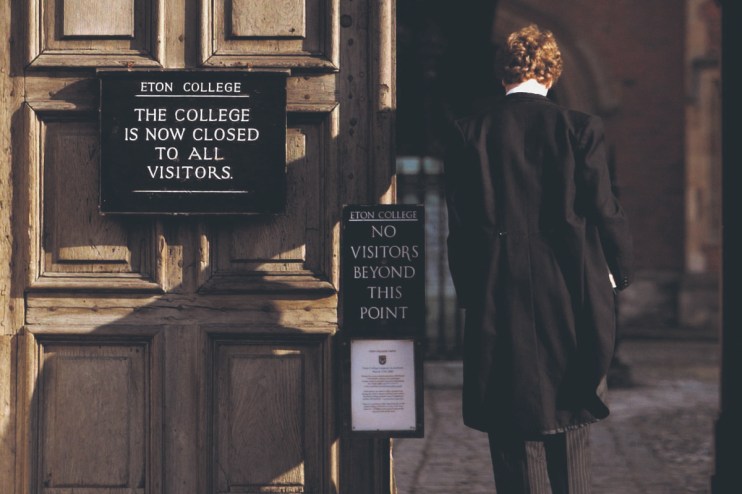VAT on private school fees to hammer ‘crisis-hit’ special needs provision

Rachel Reeves’s controversial Budget decision to impose VAT on private school fees will hit the most vulnerable special educational needs students hardest, an expert has warned.
The Chancellor confirmed at the Autumn Budget that fees are set to be taxed 20 per cent, which the government claims will benefit the Treasury to the tune of over £1bn per year, though the figure is widely disputed by critics of the scheme.
Now, leading tax and advisory firm Blick Rothenberg has warned that supplies for students with special educational needs might bear the brunt of the tax raid.
They said it would push SEN students into state schools, placing even more pressure on already stretched resources.
First off, what actually happened?
The government ended the charitable status of fee-paying schools which exempted them from paying 20 per cent value added tax (VAT) to the Treasury, as of January 1, 2025.
Any fees paid from July 29, 2024, when the policy was first announced by the government, related to the term beginning in January 2025 are now subject to VAT.
The change is expected to raise £1.5bn in 2025-26, rising to £1.7bn by 2029-30, and the government also said English private schools with charitable status had their eligibility for business rates charitable rate relief removed from April 2025, bringing the total raised to £1.8bn by 2029/30.
With the announcement, Prime Minister Sir Keir Starmer also pledged to hire 6,500 new teachers, improve school standards and upgrade the Special Educational Needs and Disabilities (SEND) system.

Why is VAT a problem for SEN?
Gabby Donald, a VAT Partner at the firm, said: “the capacity of state schools to absorb SEN students priced out of private education by the addition of VAT on private school fees is at best extremely constrained, given the numbers of SEN students catered to in the private education sector.”
“Local authorities are responsible for funding SEN provision in state schools and many already face a funding gap that is one of the factors pushing them towards bankruptcy.”
She warned that according to recent reports by National Audit Office and the Public Accounts Committee (PAC), the SEN system “is reaching, or, arguably, has already reached, crisis point”, as she called on the government to reconsider.
Donald said: “The system to obtain SEN support in state schools can be extremely difficult for parents to navigate. 98 per cent of the SEN cases that go to tribunal are found partly or wholly in favour of parents or carers.”
In some cases, the SEN tribunals that the local councils inevitably lose are more expensive than providing the SEN support in the first place.
“Regardless of the financial implications of legal action, I expect to see an increase in cases as more parents are forced to send their children to state schools.”
In addition to more pressure on councils and the possibility of more costly legal action, she added that the transfer of students to state schools “will not only disrupt their education but will place an additional call upon the SEN resources of the school that they join, potentially impacting existing students.”
Donald said the move could be counter-productive, because the VAT raised with the move, which should be put back into the education system; will actually end up going to pay for the costs of the fallout, such as dealing with local councils.
Is VAT on private school fees being challenged?
Following Rachel Reeves’s announcement about the new tax, independent school bodies clubbed together to challenge it, including hiring one of the country’s top lawyers.
Some schools are trying to absorb the fees, but as soon as it was announced, plans got underway for others to shut down.
It was reported that HM Treasury estimates suggest the policy could ultimately lead to 37,000 fewer private school pupils, roughly six per cent of the sector.
In November last year, a group of independent schools appointed Lord Pannick KC, one of the country’s top legal practitioners, to take the government to court over its decision to charge VAT on private school fees.
Lord Pannick was the leading barrister during Boris’s Partygate hearing, and he is currently representing Manchester City in its disputes with the Premier League.
Following the Budget, the Independent Schools Council (ISC), representing 1,400 private schools, decided to bring legal action against the government.
The ISC case is set to centre around breaches of the European Convention on Human Rights (ECHR) and the Human Rights Act 1998.
Meanwhile, one Shropshire-based private school said it would not pass on Labour’s VAT hike to fee-paying parents, as it is being propped up by Chinese investors.
Adcote School, an independent school for girls, courted controversy last April for funding a motorway billboard saying “VAT? What VAT?” to advertise its decision that it will absorb the cost of the hike.
